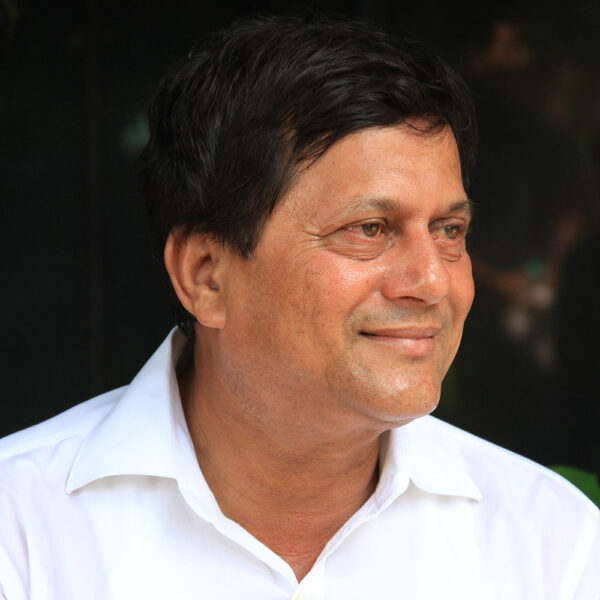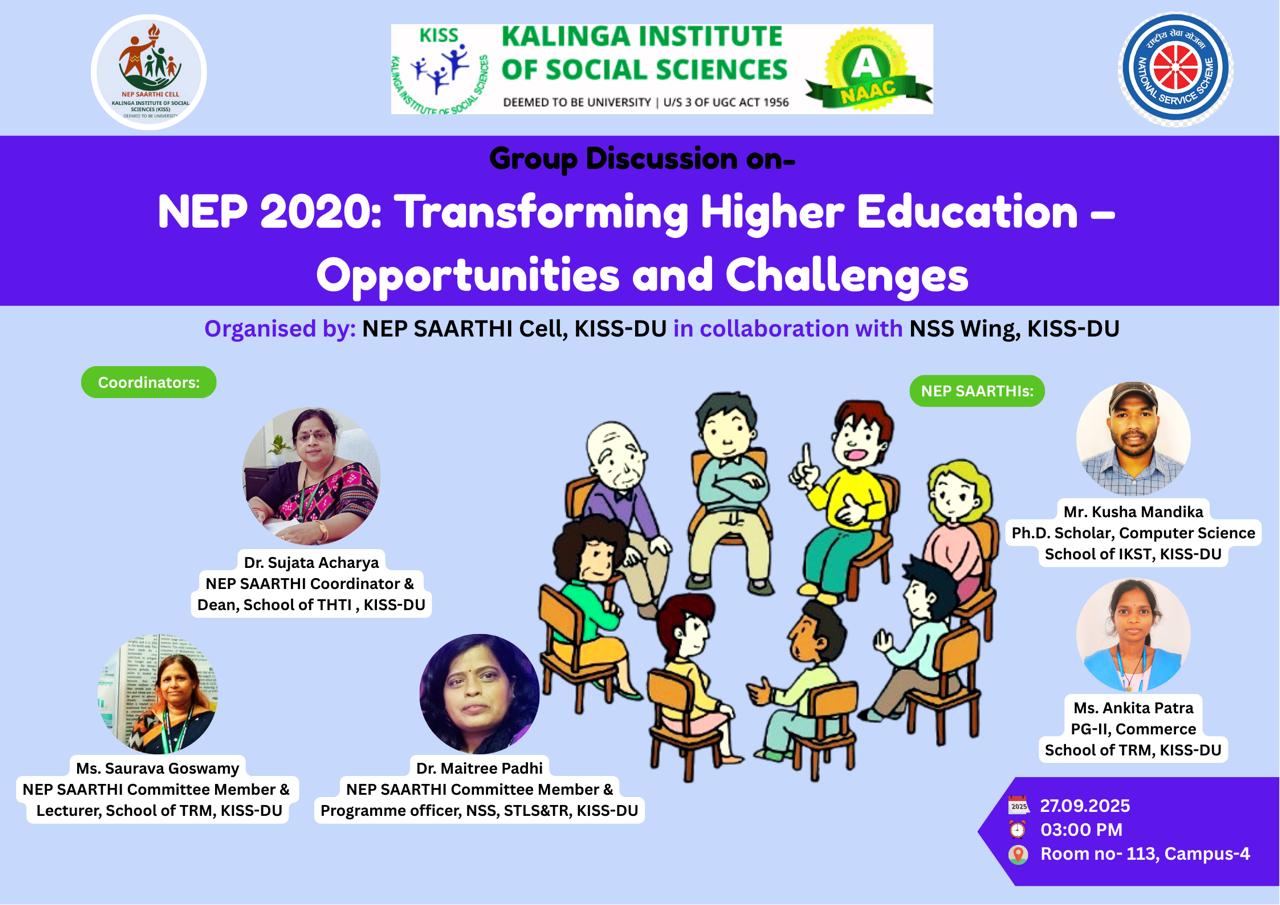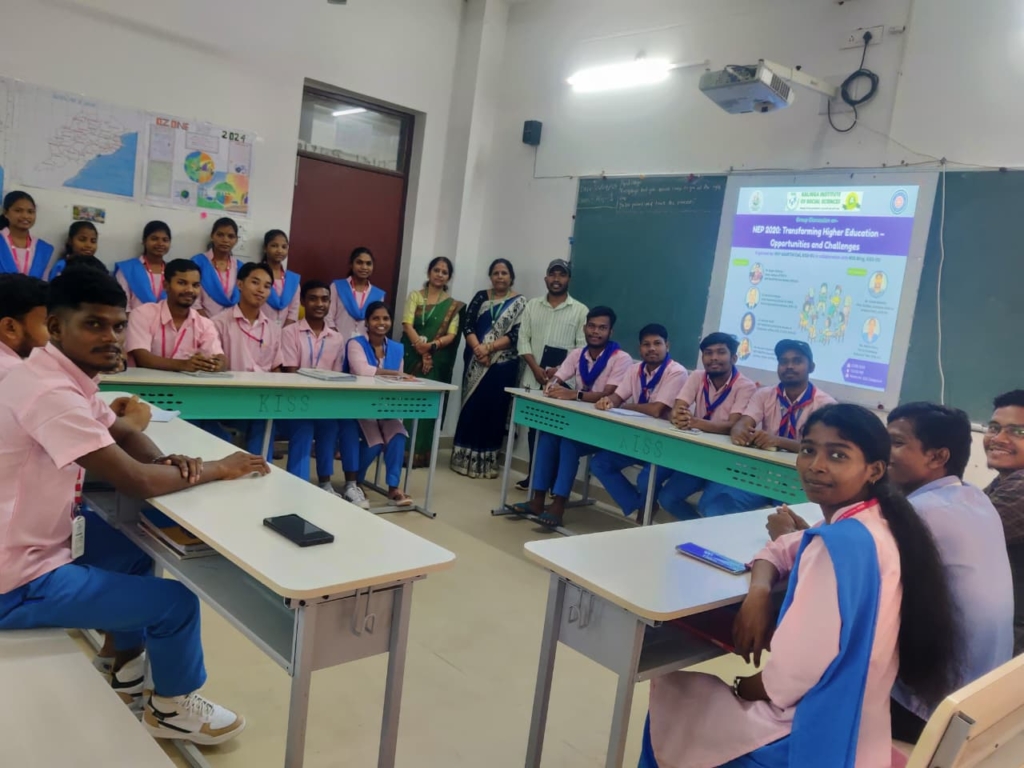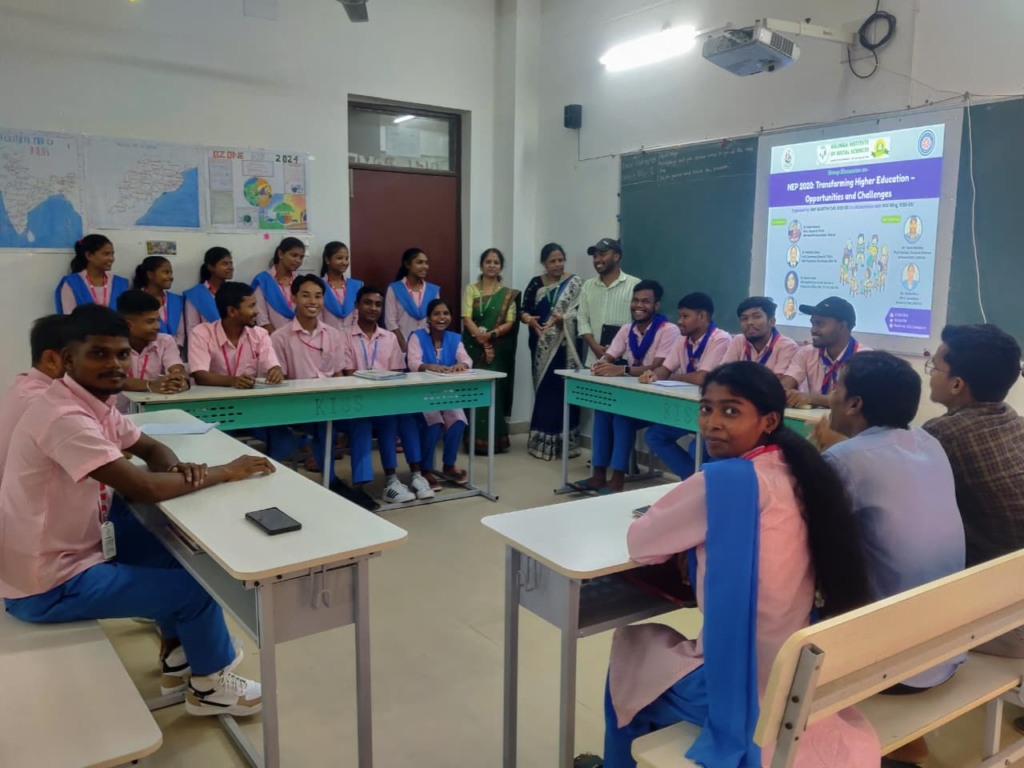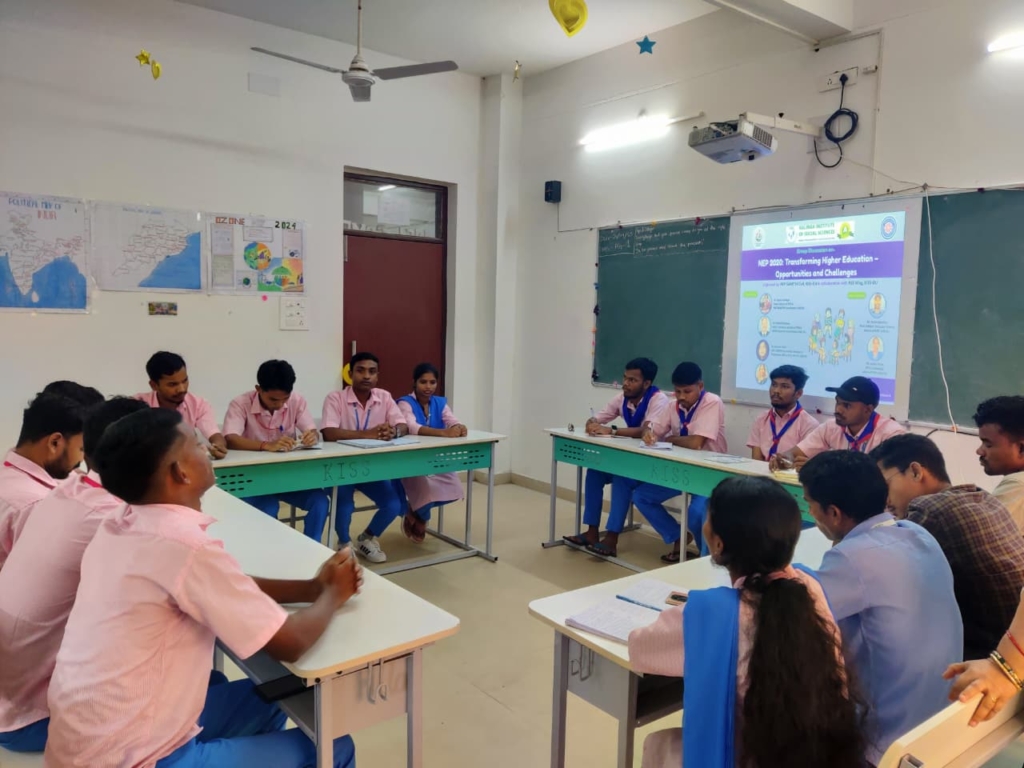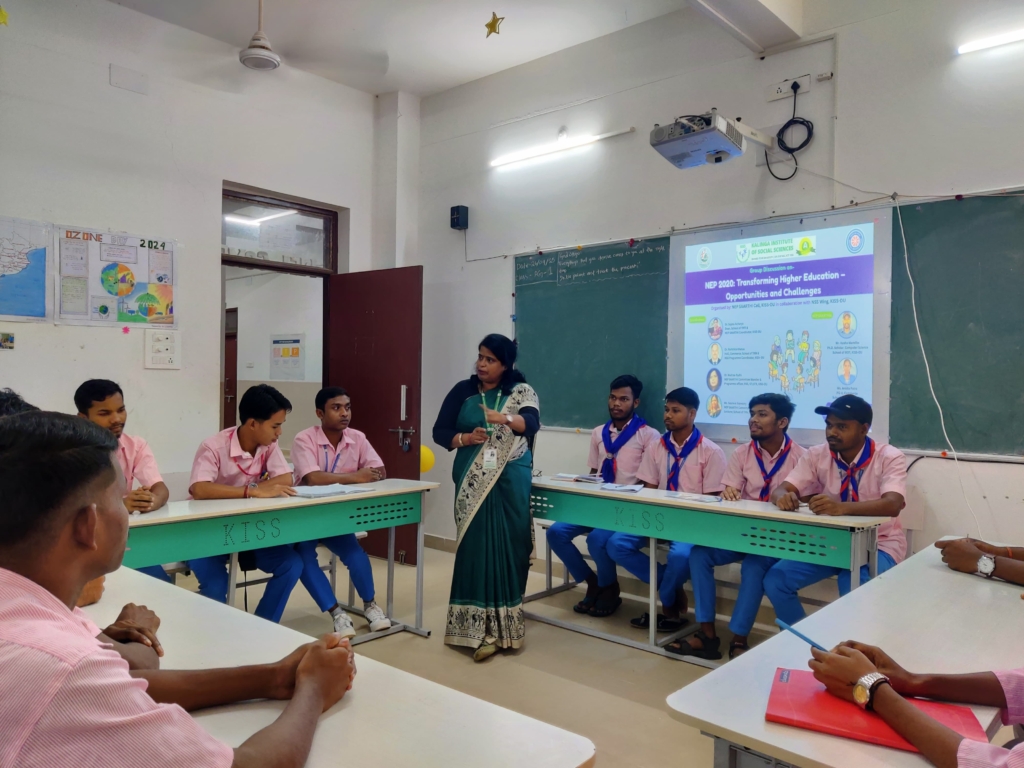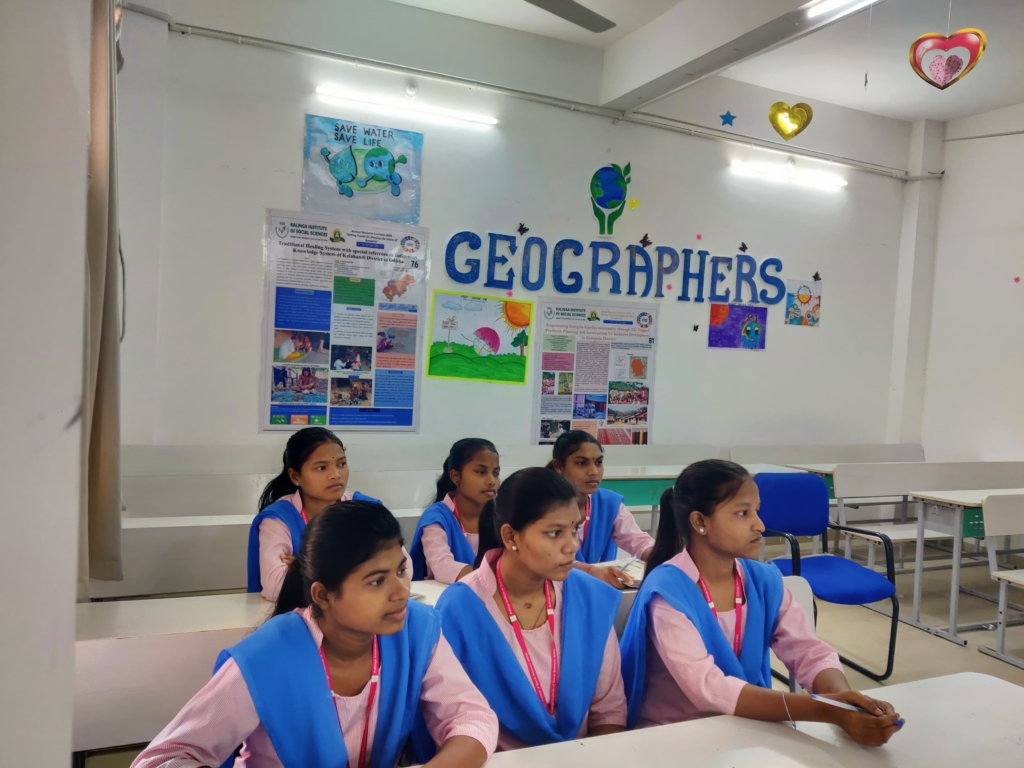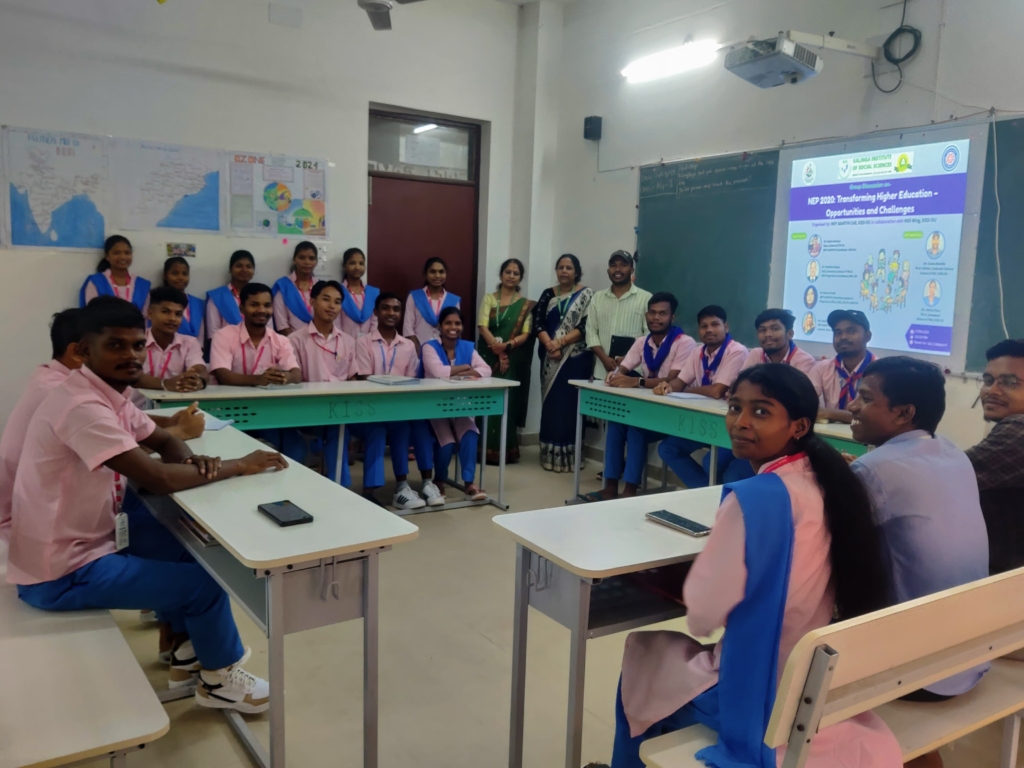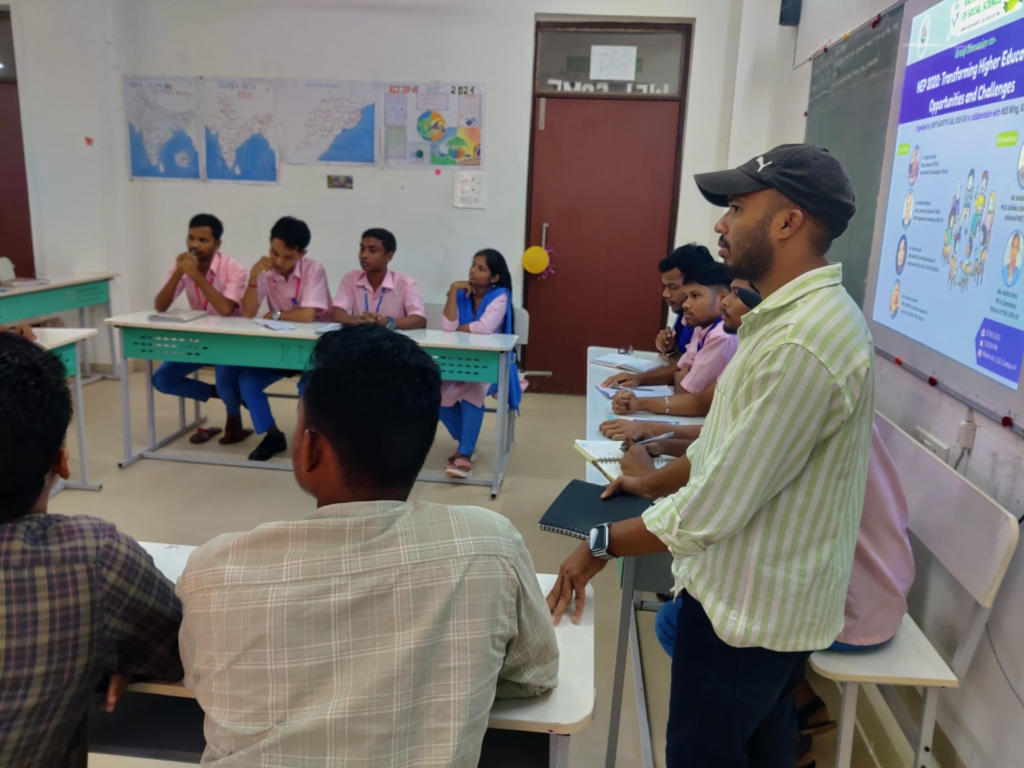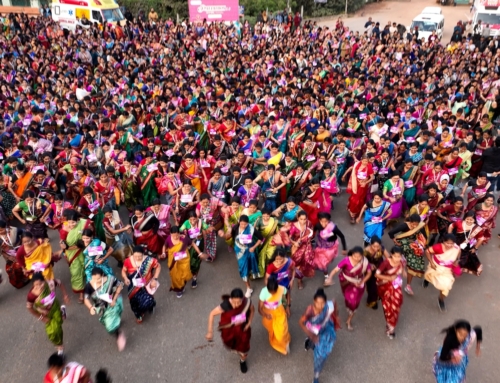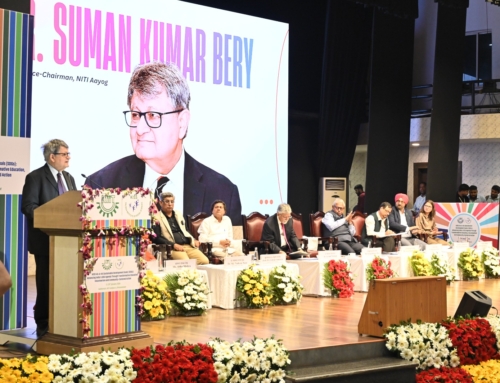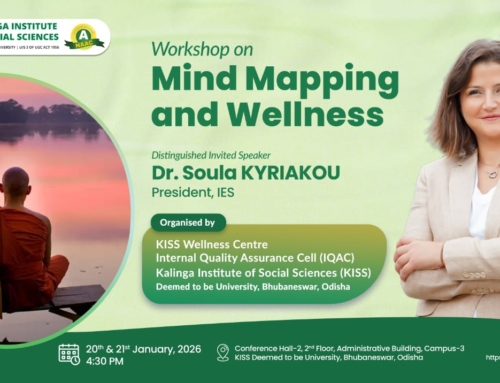The NEP SAARTHI Cell of KISS-DU, in collaboration with the NSS Wing, KISS-DU, organized a group discussion on “NEP 2020: Transforming Higher Education – Opportunities and Challenges” on 27th September 2025. The event was aimed at fostering critical dialogue on the role of the National Education Policy 2020 in reshaping the higher education landscape of India, while reflecting on its potential benefits and the hurdles in its implementation.
The program was coordinated under the leadership of Dr. Sujata Acharya, Dean of School of Tribal Heritage and Tribal Indology and NEP SAARTHI Coordinator, along with Dr. Parikhita Khatua, HoD of Commerce, School of Tribal Resource Management and NSS Program Coordinator, KISS-DU. Active support was also extended by Dr. Maitree Padhi, NEP SAARTHI Committee Member and Programme Officer, NSS, KISS-DU, and Ms. Saurava Goswamy, NEP SAARTHI Committee Member and Senior Faculty, School of Tribal Resource Managements, KISS-DU.
The discussion was dynamically led by the NEP SAARTHIs Mr. Kusha Mandika and Ms. Ankita Patra, who steered the session with thought-provoking questions and guided the participants in exploring multiple perspectives. The participants engaged in constructive dialogue on various aspects of NEP 2020, including its emphasis on multidisciplinary education, the promotion of research and innovation, skill development, flexibility in curriculum design, and global competitiveness.
While highlighting the opportunities such as enhanced access to quality education, development of critical thinking, and the creation of a vibrant research culture, the participants also deliberated on the challenges. Key concerns included infrastructural gaps, the need for faculty training, ensuring inclusivity, and aligning policy with ground realities.The group discussion served as an enriching platform for students and faculty to exchange ideas, reflect critically, and develop a deeper understanding of NEP 2020’s vision for higher education.
The program concluded with an emphasis on the collective responsibility of students, educators, and institutions in ensuring the successful implementation of NEP 2020, thereby contributing to a more inclusive, innovative, and globally competitive India.

